Nutrition
Aging: Smooth Climb…or Rapid Ascent?
Recent research reveals we experience a couple significant aging bumps along the way. But don’t fear – these dietary and lifestyle changes can help...
Home > Nutrition
Exploring advances in nutritional science and standards for health and food safety, as well as evolving consumer preferences, trends, and diets
Filter by:
Reset all filters
Sort by:
Results

CRISPR has officially bridged the gap between agriculture and human health, transforming everyday crops into tools for better nutrition, sustainability, and food security. The future of food is no longer just about yield; it’s about measurable health outcomes.
Agriculture Technology
Food Regulations & Policy
Food Security
Food Technology
Health and Nutrition
Sustainable Ag

When you reach for “zero-sugar,” “low-calorie,” or “natural sweetener” options, are you really helping your body? Read on to find out how they’re metabolized, what recent research reveals about their effect on our health, and how to navigate these ingredients wisely.

AI is reshaping food and nutrition from the ground up. Whether it’s showing you the nutritional value of your food, creating a menu from your pantry or fridge, or eliminating food waste, these new tools make it easier to eat well.

Weight loss has never been easier with GLP-1s. However, recent research is reshaping the narrative: diet quality—not just pounds lost—drives long-term health. The foods we eat affect our mood, sleep, metabolism, digestion, and other key components that contribute to living long, healthy lives.

Sugar has many names and takes many forms. While they provide energy, all sugar types can affect the body in different ways. Are you paying attention to where your sugar is coming from…and how much you’re consuming?

Electrolytes are essential for life—your body can’t move a muscle, fire a nerve, or balance fluids without them. But here’s the truth: most of us don’t need expensive powders or neon-colored sports drinks to stay hydrated. Why? Let’s find out.

With a few label-reading tricks, smart swaps, and understanding what sodium is, you can lower your sodium intake to increase your long-term health.

Research shows that diet may play a crucial role in mitigating the adverse effects of air pollution on human health.

The bright glow of some of our favorite foods is fading. Big Food is undergoing a radical, color makeover in a shift towards getting rid of all artificial food dyes. Does that mean these dyes have been toxic all along?

Magnesium may be a tiny mineral, but it’s a total powerhouse, fueling our muscles, managing glucose levels, calming our mind, and even improving sleep. But half of us aren’t getting enough of this essential compound in our diets. So how do we know which form of magnesium to take?

Is the secret to slowing aging—and maybe even staying sharper longer—locked in a mushroom once banned for its mind-bending hallucinogenic properties? Or does science paint a different story that we can instead slow our aging through certain foods?

As rates of insulin resistance, metabolic dysfunction, and hormonal imbalances climb, science shows how our diet affects our body’s internal signals and how we might be unknowingly mismanaging our hormone levels.

What does the science say about how much fluoride is safe in our drinking water? Let’s examine the history, the headlines, and the facts.

TikTok is rapidly shaping how we think about food and health, but not all viral trends are grounded in science. We’re fact-checking some health trends on the rise—from “Nature’s Ozempic” to raw dairy—and how to sort the good from the bad as more trends pop up.

There’s a surprising shift happening on your grocery store shelves. Here’s how the biggest names in food are stepping up for your health.

This is a transcript for the podcast episode, "Digging In: Should we worry about RoundUp in Girl Scout Cookies?" It discusses how beef tallow is making a comeback—and if this revival grounded in science, or just another case of mistaking “natural” for “better”.
Cattle & Dairy
Diet
Food Production
Food Safety
Health and Nutrition
Ingredients
News & Media
Transcript

Beef tallow is making a comeback—but is this revival grounded in science, or just another case of mistaking “natural” for “better”?

Recent news and social media are proclaiming that we need to eliminate seed oils from our diets. But are these concerns valid? We spoke with industry and nutrition experts to find out.

Trends in protein optimization and GLP-1 medications are now colliding. This has left us with one big question—can you lose weight on these GLP-1s while still maintaining your protein intake to ensure long term health?

Trends in protein optimization and GLP-1 medications are now colliding. This has left us with one big question—can you lose weight on these GLP-1s while still maintaining your protein intake to ensure long term health?

Trends in protein optimization and GLP-1 medications are now colliding. This has left us with one big question—can you lose weight on these GLP-1s while still maintaining your protein intake to ensure long term health?

Vitamin D is an essential nutrient for overall health. Sunlight is the most accessible source, but overexposure to UV rays increases the risk of skin damage and cancer. How can we balance vitamin D intake while protecting our skin? Let’s explore the latest science and recommendations.

The FDA's recent ban of Red Dye No. 3, a synthetic food coloring derived from petroleum, addresses consumer concerns about its perceived health risks.
Food Business
Food Production
Food Regulations & Policy
Food Safety
Health and Nutrition
Ingredients

The FDA's proposed nutrition labeling represents a pivotal moment in American food policy, addressing the critical intersection of chronic disease prevention, consumer transparency, and public health. Here’s what we know.

As we find ourselves in the midst of winter 2025, it seems like everyone around us is falling ill. But our dietary choices and proper hygiene practices can significantly reduce the likelihood or severity of sickness. Here’s how to take good care of ourselves and others during this time.

2025 promises to be transformative for the food, nutrition, and health industries. As these sectors increasingly intersect, new innovations, shifts in preferences, and scientific advancements are shaping a more sustainable and health-conscious future.

The holidays are here! While enjoying a drink can be fun, it’s essential to understand how alcohol impacts our health so we can make informed decisions and enjoy responsibly.

There are so many food labels today: organic, grass-fed, no hormones or antibiotics added, non-GMO…the list goes on. D2D's here to help you understand them and to know when you’re being fooled so you can make better food decisions.
Agriculture Technology
Animal Welfare
Cattle & Dairy
Food Production
Food Regulations & Policy
Soil and Crop Management
Sustainable Ag

It's no surprise why many of us include more plant-based proteins into our diets. While eating more fruits and veggies is always a good idea, it's important to know which nutrients you might be missing.
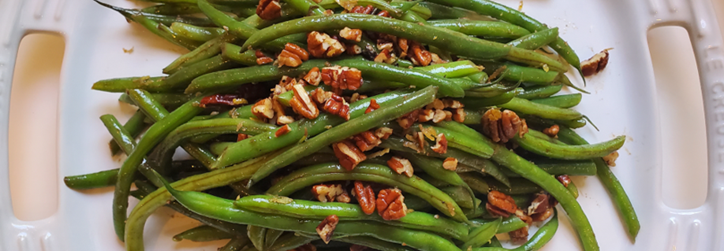
We all need to exchange that tired green bean casserole for this bright, complex dish that triumphs over its soggy cousin....right now.

This roasted turkey is the go-to recipe for D2D's contributing chef, Lisa Fielding...and for good reason.

Mitochondria might not cross your mind every day, but they're crucial for everything you do, including thinking. These tiny organelles in your cells generate energy by breaking down food, and your diet significantly impacts their function, affecting your immunity and long-term health.

Alcohol consumption can have profoundly detrimental effects on our brain and body. Extensive scientific research shows how alcohol impacts our overall health, offering insights into its consequences and what we can do to deter its effects.

Can our body tell the difference between synthetic vs. natural vitamins? Are natural vitamins always better for us? Or do synthetic supplements have a place in our diets?

Inflation doesn't look like it's going away anytime soon, especially for food prices. So we combed through recent research for insights into food budgeting for a family in this environment, and how food brands can address these ongoing stressors.

Protein is essential to build muscle, repair tissues, and for feeling full. But while we’re busy adding protein waffles, bars, and powders to our shopping carts, have we considered if there's such a thing as too much?

The differences between glycemic index and load can be difficult to understand. But we need both metrics to understand how your body processes sugar to improve our overall health.

Do you want to prevent disease? Then consider fermented foods. Fermentation is a chemical reaction that’s responsible for some of our most favorite food and drink. And not only taste great...they can be great for you.

Summer is the perfect time to enjoy a variety of fresh, nutritious fruits and vegetables. This produce guide will help you make the best choices for maximum nutritional benefits, supported by scientific studies and delicious recipes.
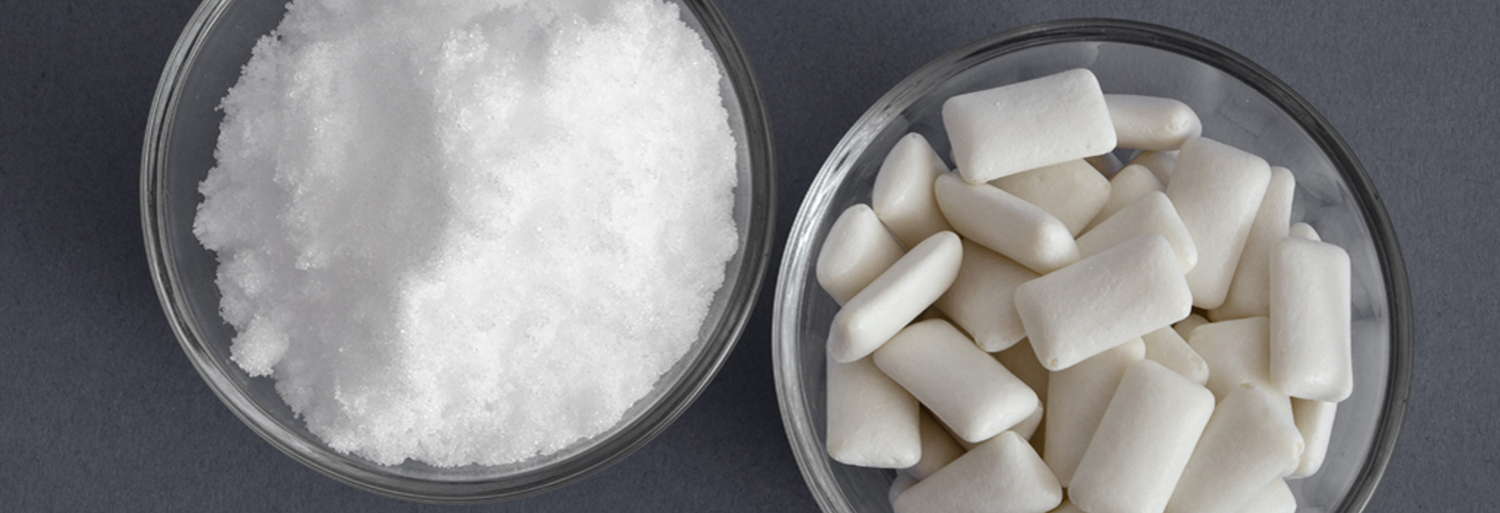
A new study revealed a significant link between the sugar substitute xylitol and increased risk of stroke and heart attack. Let's look deeper into the research and find some key takeaways for our health.

Milk is a vehicle for many nutrients. It is a healthy source of fat, calcium, protein, amino acids, vitamins, and minerals. What role does pasteurization play in the production of milk? And does this process do more harm than good?

Alternative sugar sweeteners get a bad rap for their association with cancer, Alzheimer’s, obesity and stroke. D2D went on a fact-finding mission to find the differences between Equal, Splenda, Sweet ‘N Low, and Stevia and its effect on our health.

A new documentary delves into the fascinating and complex world of gut health. Guided by German scientist Giulia Enders, the film explores the microbiome and its impact on overall health. What did the film get right and wrong, and what can we learn about our health?
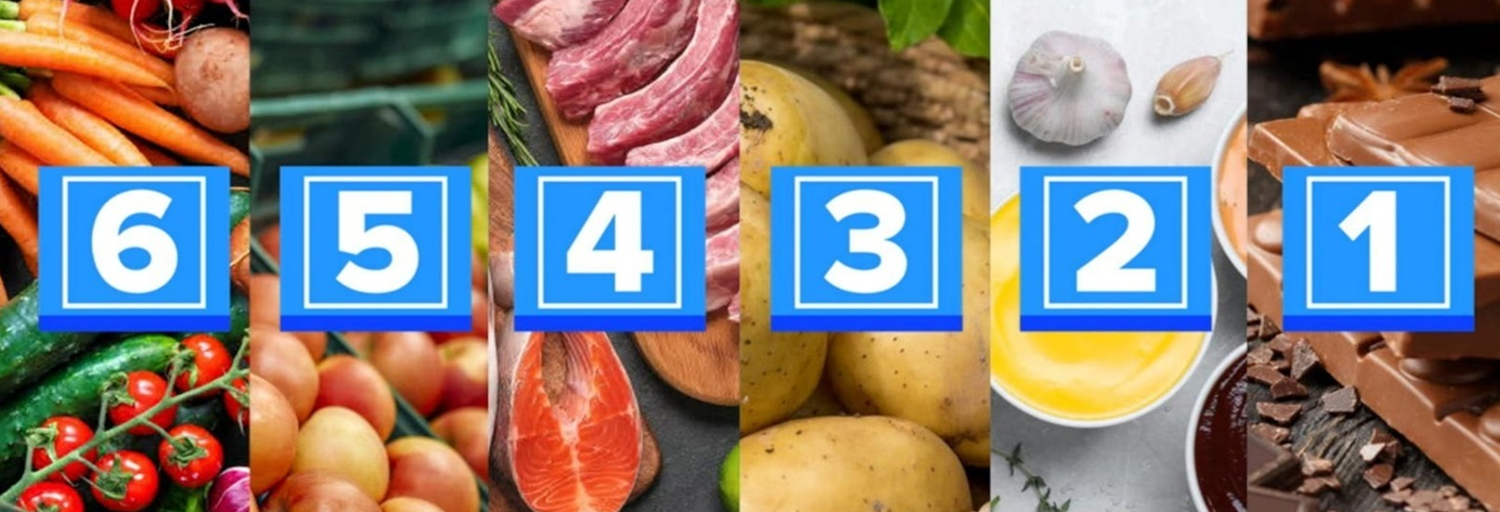
As food costs continue to rise, we've become increasingly mindful about grocery spend. The 6-to-1 grocery shopping method offers a structured, economical approach that specifically emphasizes the importance of nutritional benefits while being cost-effective.

Before serving your family and guests, let’s review safe food storage, handling, and preparation to help you protect everyone at your dinner table from foodborne illnesses.

In the latest peer-reviewed study on dairy, researchers highlight that full-fat and fermented dairy foods may actually offer beneficial effects on cardiovascular risk and metabolic syndromes. The study emphasizes the complexity of dairy foods and their varying impacts on health.

Recent research highlights coffee's health benefits, particularly from trigonelline, which improves muscle health and has neuroprotective effects. Find out more truths and myths about coffee through the latest research.
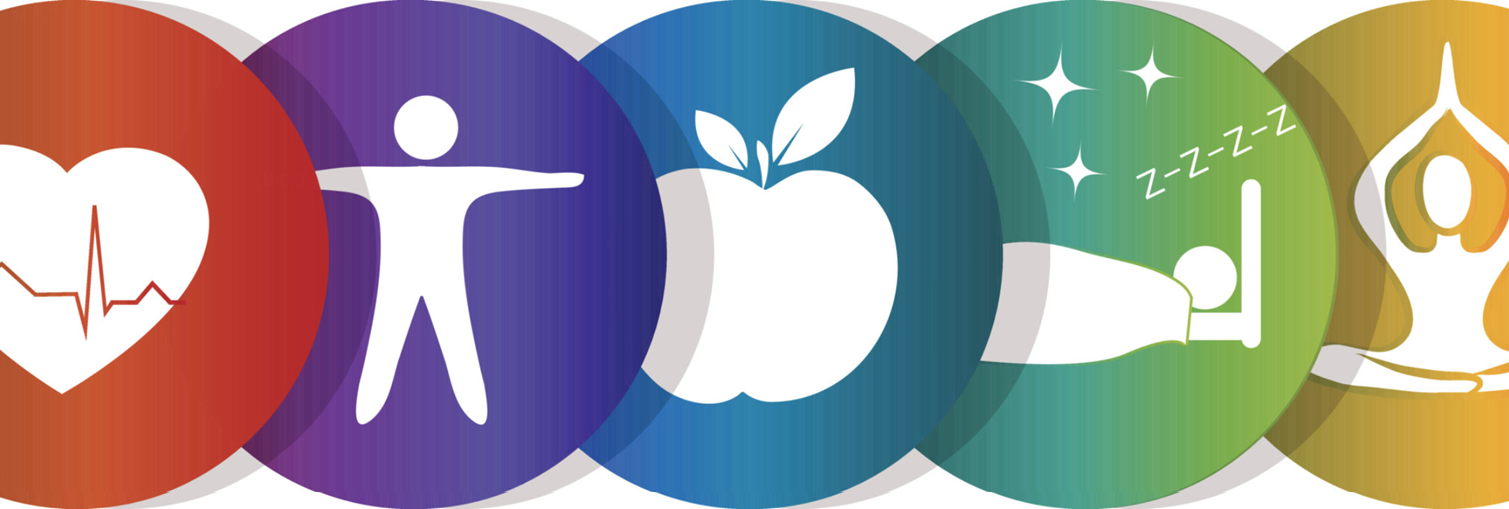
Health consciousness is not just a trend, but a lifestyle. Mintel's latest report sheds light on the pivotal trends shaping the future of nutrition, health and wellness. Here, we delve into the report with the intention to make lasting changes for our long-term health.

Chipotle wants to change the industry and beyond with its $100 million commitment to invest in strategies to "Cultivate a Better World". What can we expect from fast food companies in the future?

Scientists recently discovered the combination of sugar and fat in a food product can lead to more intense cravings. Here's what we know and how to combat overindulging...

Will Ozempic change the food industry? Patients experience significant decline in appetite and greater restraint for unhealthy foods. Could this inspire food companies to create healthier snacks?

Another food documentary has hit your streaming services, but watcher, beware. We explore the research and diet recommendations in these episodes to determine if they’re fit for our nutritional health…or flawed.

Researchers recently discovered that TVA, a nutrient found in beef and dairy products, can enhance the immune system's response to cancer. What exactly did the study find, and what does this mean for your health?

A recent documentary highlights a unique subset of populations living well beyond 100 years old. What's their secret? We delve into the research behind these "blue zones" and how you can achieve the same results.

Food companies are bringing a fresh set of ideas that address consumer concerns and promise to reshape the way we think about the food on our plates and the drinks in our glasses. Here are 2024's top trends...

We're exploring not only what happened in food & ag across the globe, but also those who gained and those who suffered from these events. Ultimately, why we all should care about our ever-evolving food system.

Our minds controls a remarkable ability to influence physical well-being, something known as the "Belief Effect." This cognitive phenomenon showcases the profound connection between our beliefs, attitudes, and health....including nutrition.

Despite decreased demand for wine in 2023, you won't see empty shelves at your favorite wine shop or miss a glass of your favorite wine at dinner. The world still produces a staggering 6.9 billion gallons of wine each year, proving that the allure of wine remains very strong.

The food and agricultural sector is often overlooked as a fertile source of rewarding jobs and careers. Whatever the personality type, whatever the ambition… our agricultural system has something for virtually everyone.

Dirt to Dinner depends on this Pumpkin Pie Cheesecake to keep Thanksgiving vibes going strong well after the turkey has been gobbled up.
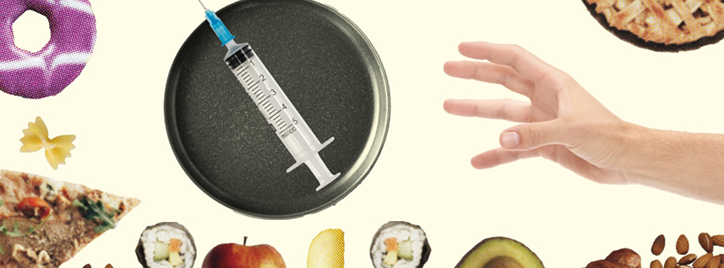
Exploring the power of nutrition reveals that diet can mimic Ozempic's effects, emphasizing that eating the right foods in a strategically nutritious way can lead to effective weight loss.

It's that wonderful time of year again! D2D found the best tips to properly clean, prepare, and cook your turkey for a delicious and safe Thanksgiving meal. Gobble gobble!

Microplastics can enter the human body in a variety of ways — through the foods we eat, the clothes we wear, and the packaging we use. The health risks have been well documented, but here's how to mimimize the impact.
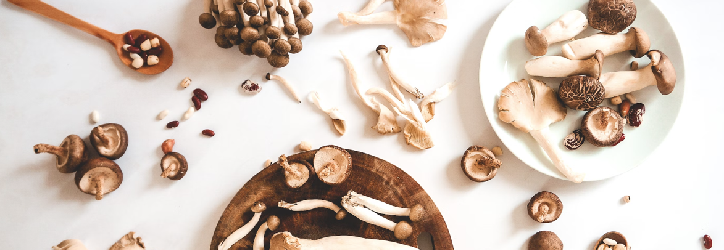
Mushrooms have gained a lot of attention for a reported array of benefits. We're delving into how to assess supplement quality and the role of third-party verifiers in ensuring their authenticity and effectiveness.

In today's fast-paced and stressful world, adequate serotonin levels are crucial for maintaining mental and emotional health, among many other benefits. We pinpoint which foods can help boost this mood-regulating hormone.

Many of us in the U.S. suffer from nutrient deficiencies, leading to increased risk of various life-threatening diseases. Here are five common nutritional deficiencies and what you can do to boost your intake.

Wondering what you can grill for your friends and families that's both healthy and delicious? Don't worry, we've got you covered!

With supplements and bars filling the shelves, it made us wonder: how much protein should we consume? Here's what we found out...

Stretching can help your body absorb nutrients from the foods you eat. You’ll have a whole new appreciation for touching your toes when you hear about all the benefits it can have on your nutrient intake!

On this episode of Digging In, we're fortunate to have nutrition expert, Dr. Jim Joachim, MD, FACN. Listen in as we dig into the role nutrition and supplements play in meeting our individual health needs!

EWG recently released its annual “Dirty Dozen” produce list, which stokes fears of eating produce with pesticide residues...as if we don't already have enough to fear with COVID. But is EWG right? Or do the benefits of eating produce to maintain our health far outweigh these concerns?

Many of us keep our seasonal allergies at bay with over-the-counter meds. What if you could eat certain foods to help fight your symptoms? Put down the decongestant and update your grocery list with these items...

Nutrition expert, Isabel Smith, R.D., shares with us some ways to avoid heavy metal accumulations. You don't want to miss this episode of Digging In!
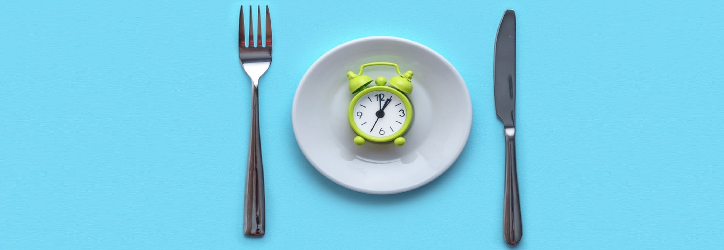
We’ve compiled a list of the latest studies surrounding time-restricted eating covering sleep, brain health, chronic illness reduction, and weight loss research. Take a look to see if it's something you should consider!

Healthy sugar is the holy grail of sweetness. For this week's podcast, Lucy talks with Ed Rogers, CEO of Bonumose, to learn about the special nutritional components of tagatose - a healthy sugar.

Our bodies crave protein, so why do we try to satisfy this innate need with processed foods? A new study suggests we overeat because our protein needs are unmet. Could this be true?

Really smart people have told me that occasional bouts of confusion are normal as we age, and I’ve taken comfort in that. But I’ve got to admit I was thrown for a very serious loop when I came across the Tufts Food Compass Score...

Most of us are fiber deficient, which is a pity: fiber helps maintain digestive health, lowers cholesterol, and controls blood sugar levels. But we can't just add any fiber to our diets to reap all these benefits; we need to consider a few other things...

Are omega-3 and omega-6 fatty acids healthy? The science is conflicting. Some say we should not limit our intake, while others say we should avoid Omega 6s at all costs. We talked to an expert to uncover the truth.

With so many substitutes for milk to choose from, it can be difficult to know which is best. How do mainstream milk alternatives compare nutritionally?

Did you know that our diet has a direct impact on the function of our mitochondria, affecting our long-term health? Check out these 5 nutrients you can add to your diet right now to improve mitochondrial function!

With a new influx of research surrounding MCT oil, we can now evaluate the claims and myths surrounding this fatty acid. Should you try it?

Salt is a vital component in the functioning of our bodies and it boasts over 14,000 known uses. Where does it all come from?

We were ready to start enjoying our summer cocktails until we heard a rumor that alcohol stops the body from burning fat for up to 36 hours after drinking. Let’s find out if this should have us all dropping our cocktails!

It's National Egg Day! Let's talk about why we should incorporate eggs into our diet.

Heavy metals are present in everyday items and, if overexposed, can cause a variety of health problems. Knowing what foods to eat to fortify your body can provide a protective mechanism to combat these inevitable exposures.

Move over Impossible Foods and Beyond Meat beef burgers, there’s a new plant-based option in town. Let’s look at plant-based chicken and how it compares nutritionally to traditional poultry.

Fasting for longer periods of time has been shown to have more long-term health benefits than intermittent fasting. Learn what some of these benefits include and decide if fasting is right for you!

A new food label proves European food manufacturers' commitment to consumer health. This stoplight-like label helps shoppers quickly determine a product's overall nutrition. How will U.S. food producers react?

Have you seen the new GMO labels? As of January 1st, the USDA requires food companies to label products as “bioengineered” if any ingredients are genetically modified. What will this mean for GMOs and consumer acceptance?

I tried a fast-mimicking diet and learned it's so good for your health. But how many days do you need to fast for it to be effective?

How is sugar sneaking into your diet? Many of us turn to protein bars as an alternative to sugary snacks. But many of these “healthy” snacks have more sugar than a candy bar. Are we getting fooled?

It's easy to see when the choices others make are bad for them. However, our brains try to protect us from disappointing or conflicting info, resulting in overconfidence with our own abilities and beliefs than we should have.

Happy Valentine’s Day! What are the benefits of that tasty treat you bring home to your sweet? Find out!

Most of us take a supplemental nutrient to ease joint pain, make our digestive system happy, or get veggie nutrients we may have missed during the day. But do they really make us healthier? Or are they just a bandage over a bigger problem?

We all care about diet and the important role it plays in our health. But how do we know what choices to make when our heads tell us one thing and our natural instincts might say something very different?

Governments and companies are changing the way we address food security, the environment, and consumer health. At D2D, we have covered some of these subjects previously but are now looking harder at how the future will be shaped by those who grow, trade, process, and consume food.

A long-term study just released results contradictory to previous guidance on dairy intake. This study, coupled with others of its kind, has provided new food for thought: cutting down on dairy might not be the best choice for your heart health.

What if your baking ingredients cost double this holiday season? A tax aimed at sugary products could have these effects, but will this make us healthier?

Social media has us believing calorie-deficit diets are in right now, and many fitness trainers and influencers recommend it for weight loss and muscle building. But, when my fiancé tried to do it, we realized it’s not as easy as everyone makes it seem.

Fall is finally here! What fun and healthy things can you do to celebrate?! Click to find out!

Our bodies need fat to function, but some types are better than others. This discovery can change our treatments for chronic issues like obesity and diabetes while improving health.

We used to think fat was bad for us, however now we know that’s not true. We need all different kinds of fat to have a healthy lifestyle. Here are five of the healthiest we can eat!

Should we listen to social media for nutrition and health information? Although many people would say yes, following the diets and trends of influencers and celebrities may be more harmful than helpful.

Another green drink has entered the world – liquid chlorophyll. The trend, which went viral on TikTok, has users drinking chlorophyll to obtain its supposed ‘benefits.’ What’s the science, if any, behind this new phenomenon?

It’s summertime! And, if you’re looking for a refreshing summer cocktail that you can sip on guilt-free, you’ve come to the right place!

Should we avoid animal products at the grocery store that don’t have the “antibiotic-free” sticker? Many people think so, but this label may be more marketing than it is factual.

Happy National Cheese Day! There are many benefits to incorporating both cheese and other dairy products into our diets. Let’s talk about five big ones!

To take advantage of all the grilling taking place this holiday weekend, we're highlighting some of the benefits of that lean and juicy beef patty. Although beef can get a bad reputation, it is a highly nutritious food with many health benefits.

You've probably heard of probiotics, but what about postbiotics? And what role do these components play in the relationship between our gut and our immune system? It turns out - a big one...

“Intuitive eating” is gaining a lot of momentum. It consists of listening to your body and thinking about food as a part of an overall lifestyle choice, rather than a restrictive diet. I decided to try it out to see if I actually eat healthier and feel better.

Eating ‘clean’ is becoming very popular, especially online. But, what does “clean eating” really mean? Don’t we all eat clean food every day?

Before reading Jack Bobo's new book, I assumed I was making good choices to stay healthy. But after reading "Why Smart People Make Bad Food Choices", I questioned everything. Are social media and grocery store marketing tactics hijacking my decision-making? Apparently so...

Have you drank your chlorophyll today? Liquid chlorophyll is the new TikTok sensation. Users are turning to this daily supplement to help with their skin, reduce bloating, weight loss, and more. Thinking of trying it? Read this first!

In celebration of World Health Day, we’re going to tell you the five foods that we should all incorporate into our diets to ensure a healthy heart, mind, and body.

AquAdvantage Salmon, created by AquaBounty, is the first genetically-modified salmon approved by the Food and Drug Administration (FDA). Here is what we need to know about this GM salmon.

Happy National Spinach Day! Learn why we love this nutrient-packed leafy green.

Introducing D2D's "Discerning Dozen", a compilation of tips to identify good science from pseudoscience. This way, you can spot problems in the logic of buzzy news stories, like EWG's Dirty Dozen.

March 19th is National Poultry Day! And, what better way to celebrate than to talk about one of the healthiest proteins we eat – chicken!

Lucy Stitzer, D2D's founder, believes we should have a choice on whether to buy organic or conventional produce - but wants science to drive the decision, not fear...

Many of us assume that if you can’t pronounce an ingredient, it’s automatically bad for you. This, however, is not the case at all. Many additives are entirely safe for human consumption, so much so, we see them in our fruits and veggies.

Happy National Nutrition Month! Vegetables are one of the most nutritious foods we can consume, and our bodies need a lot of them. There are lots of fun and yummy ways to get your daily value of veggies and we’re going to show you some of our favorites.

The USDA just released its new dietary guidelines. What does that mean for our diet and what exactly must we eat every day to get all the nutrients we need?

Nootropics, or “smart drugs,” are known for their brain-power effects, helping users think more effectively and develop a stronger memory. Sure, you can find them in a supplement, but what many people don’t know is that they’re in many of the whole foods we eat every day.

When you go to the grocery store, you'll see an array of different labels plastered all over your food, each one with a perceived connotation of whether it's good or bad. But what consumers don't know is the truth behind these labels and what they really mean.

We all want to live long, healthy, happy lives…but how? “Blue Zones” are regions where populations live longer and healthier than the rest of the world. So what can we learn from them to improve our health?

Fueling your body with vitamins is essential, especially in these long, dark, cold winter months. But what makes vitamins so important?

Marketing can obscure our sense of good science, especially at the grocery store. Let’s get to the bottom of what functional waters can achieve...and what they really can’t.

GMOs are one of the most controversial topics in mainstream culture, even though they are proven to have many benefits for our farmers, consumers, and the environment.

Happy New Year! If you’re thinking about resolutions or want to become more focused on your health and immunity this year, we have some tips for you...

If there’s one thing we can’t seem to get enough of during the holidays, it’s festive cocktails! But many include extra calories, unwanted carbs, and lots of sugar. That’s why we’ve compiled a list of healthier options so we can enjoy them without worrying about breaking our health goals!

We know the struggle of wanting to indulge while attempting to maintain your health goals. But don't fret - we've got recipes with all the flavor and less guilt.

Thanksgiving dinner is one of our favorite meals of the year, but we always struggle with one thing – what on earth do we do with all those leftovers?! Don’t worry, we’ve got you covered!

As we approach winter, we're pursuing ways to strengthen our immune system. Some of us have recently added EpiCor, a postbiotic, to our balanced diets and have felt its benefits. Let's take a closer look at this supplement...

Halloween is here! So how can you indulge in a little candy without totally ruining your health and fitness goals? We list 5 healthier candies that you can eat in moderation this Halloween!

D2D set out with a goal to better understand the issues affecting American farmers - their concerns, hopes, and thoughts about the next four years. Here are our results...

Fall is upon us! And, with fall comes delicious, fresh apples! Snacking on a fresh-picked apple, the smell of an apple pie in the oven – we sometimes forget their nutritional benefits. An apple a day really can keep the doctor away and we’re going to tell you why!

What if you could think better, faster, and have a stronger memory? Nootropics, found in foods and supplements, are believed to have a positive effect on our mental capabilities and brain health. Let’s see how they work and find some natural sources.

We’ve told you what foods you should eat to protect yourself from COVID-19 and how to manage your physical self during COVID-19. This week, we’re taking a bit of a different approach. Introducing: 5 things you can do right now if you WANT Covid ;)

Navigating through COVID-19 can be stressful, and stress can wreak havoc on our bodies. That’s why we’re here to give you 5 ways to help manage your stress and strengthen your immune system!

Recent films and fantastical food documentaries have confounded us about proteins by vilifying meat and painting a story of plants as the superior source. Are you as confused as we are? Let’s see what the science says about the quality of plant vs. animal protein.

Wear a mask. Wash your hands. Don’t touch your face. What about feeding our body with the right foods that will help us fight off any infections that come in our path? Here are 5 foods to eat to fight off COVID-19!

Our brains are machines, and just like our stomachs, they also need to be fed with the best and most nutritious food that can be offered. Here are the top 5 foods to feed our brains while fueling our body!

They’re known as a superfood for their high nutritional benefits. We know they’re good for us, but what’s going on in those tiny berries? We’re here to tell you!

Did you know that there are ingredients used in some sunscreens that may be more harmful than they are beneficial? We’re here to tell you which ones to avoid!

We are a nation struggling with health. Almost 75% of us are overweight, a contributing factor to heart disease, the #1 killer in the U.S. A recent report from Tufts says this could be prevented with government intervention. But is it too late?

COVID-19 has reshaped many things about our daily habits, including how we eat. So are we snacking more because we’re home all the time, or we’re stressed out, or a bit of both? And will these seemingly inconsequential shifts in our eating behavior affect our long-term health?

As stress levels rise from Covid and school reopenings, so do our cortisol levels. And too much can cause weight gain, high-blood pressure, diabetes, and insomnia. But don't fear: our diet can help manage these levels.

We regularly hear that eating red meat causes cancer, but isn't meat a good source of protein and micronutrients? There are a few studies that, while not in total agreement, are well accepted by the overall community as being plausible, if not probable about meat's relation to cancer.

Can time-restricted feeding, or just eating during an 8 to 10-hour period during the day, offer just as many long-term health benefits as other intermittent fasting practices? And how hard is it to keep up?

We are told that steering clear of scary-sounding ingredients is a simple, healthy way to avoid potentially toxic chemicals. But it’s important now more than ever to understand how food can affect us, because myths like this bolster unneeded fear during an anxious time.

With social distancing, we're not at the mercy of a small wine list at a local pub. So should we start our virtual happy hour with something vegan? But aren't grapes an inherently vegan product? Animal products have a role in wine production, and vegan consumers should be aware.

We've all witnessed panic-buying in the grocery aisles and maybe did some ourselves. The empty shelves reveal how we try to find control as coronavirus fears grow more rampant. But how do we control our fears and our carts?

Boost your immune system during COVID-19 with your diet. Mushrooms can strengthen your immunity, while also improving brain health and inhibiting cancer growth.

Which foods are best for you? Personalizing your diet can optimize your health and prevent illnesses like cancer and obesity. These programs create customized diets based on our personal data...but do they really work?
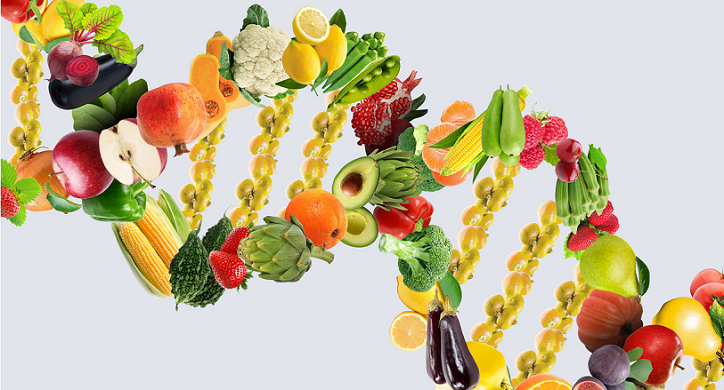
Epigenetics is the study of how our DNA can be triggered by our lifestyle, which includes food, sleep, stress, and our relationships. But can we really change our genetic predispositions affecting our health?

As we begin the new year, many of us aspire to be healthier, stronger and leaner. So we turned to a professional who has dedicated her life to healthy living. Enter Gabrielle Reece and her approach to whole-body health.

Here's our "nice list" of helpful posts to keep you healthy, happy and in-the-know through the holidays and into the new year. Everything from delicious, low sugar recipes to global trade and alternative proteins, we've got you covered!

As the holidays approach, sweets are everywhere! Most of us consume two to three times more sugar than we should. Further compounding the problem are foods with hidden sugars. So what does this excess sugar mean for our health?

Blueberries, kale, and chia seeds are examples of "superfoods" -- magical foods believed to make us instantly healthier and stronger while getting rid of toxins. But can superfoods actually deliver? Or are we just being fooled?

Plant-based burgers are popping up everywhere! And while we've heard about their positive impact on our planet, what about the nutritional value? What are the differences between alt meat, beef, and veggie burgers?

If I eat meat or dairy and those animals have eaten GMO corn or soybeans, am I ingesting GMOs, too? Will I get sick? And what about the animals...is GMO feed harmful to them?

Manuka honey’s antibacterial properties are said to help cure everything from wounds to tooth decay and even infections from cystic fibrosis. Can this supposed superfood really provide relief from these ailments?

Concerned if GMOs are harmful to your health? We dug into exactly what happens in our bodies when we eat food that has been grown with a GMO.

Did you know the devices we depend on all day emit electromagnetic fields? We're taking a look at what these fields do to our bodies and which foods help us combat any ill effects.

The FDA recently stated that several specialty dog food formulations have led to canine heart disease. With so many food choices today, what should we feed our pets?

Consumers continue to be confused about GMOs. What if we told you that enhancing your banana bread recipe with additional nutrients is similar in concept to adding a gene to a plant?

What is the deal with celery juice? How did it become a viral sensation overnight? Is its rapid gain in popularity attributed to any scientific research, or is this an example of society's demand for quick fixes and social acceptance?


Every 65 seconds, someone in the United States develops Alzheimer’s. That means that in the time it takes you to read this article, five people will have developed the disease. Alarming? Yes, but what if there was a diet that could help slow cognitive decline by targeting brain protective foods that combat the causes of dementia-related diseases?


After 25 years, the nutrition facts panel is getting an update! Many businesses have already converted to the new label, which begs the question: what changes have been made and what do they mean to me?

Wielding corn syrup as the knife to cut down the competition confused and misled consumers by engaging in a fear-based marketing ploy.

Sugar can be addictive and bad for your health. What if there was a healthier option?

Thanksgiving is a time to cherish traditions and family recipes! Don’t let the recent salmonella outbreak scare you from preparing your feast. You can keep salmonella away from your table by properly handling and cooking your turkey.

You are what you eat! Dirt-to-Dinner was asked to speak about diet and inflammation at an educational conference designed for Orthopedic surgeons and their staff. Here is an excerpt of the talk on how to reduce chronic inflammation by 50% just through dietary choices!
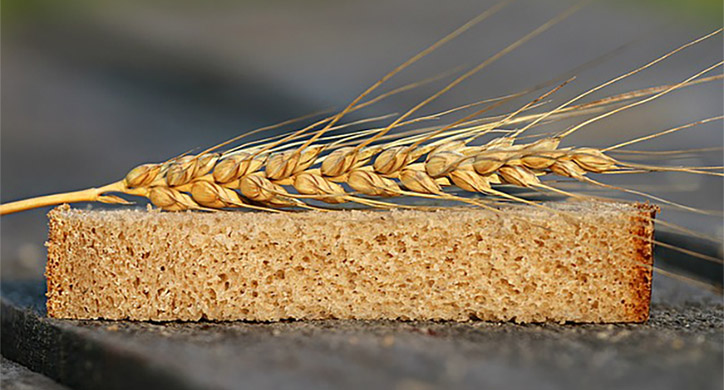
Are you thinking about going “gluten-free”? Many people claim it helps them lose weight or ease inflammation. And these days, gluten-free options abound in the grocery store and on restaurant menus. Gluten-free isn’t for everyone.
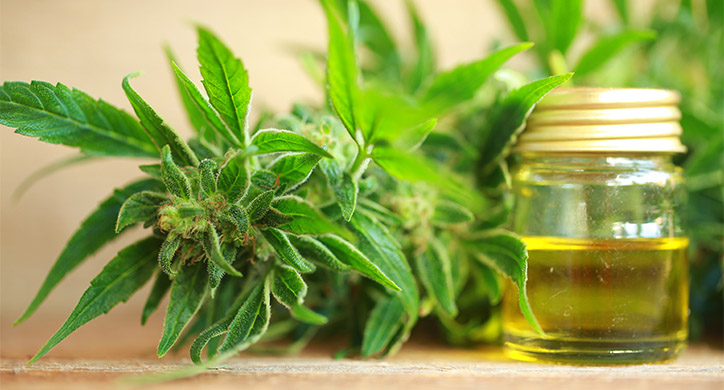
CBD may help to reduce stress, anxiety, pain, and inflammation. It is a promising therapeutic agent in the battle against epilepsy, cancer, Alzheimer’s and Parkinson’s disease. What exactly is CBD and what does the science say?

Do you count on rice and wheat as a significant source for your protein and minerals? Climate scientists have written that as CO2 increases, the nutrients in our food will decrease. Do we have to double up on calories to properly nourish our bodies?

When it comes to nutrition in produce, is fresh always best? Or is frozen produce equally as nutritious? What may surprise you is that frozen produce has some advantages to consider. Also, let’s find out how to prepare our own veggies for a deep freeze so we can continue enjoying them for the months to come!

Are you inflamed? There are three main reasons your body could have chronic inflammation: digestive issues, obesity, and ingesting too many toxins.
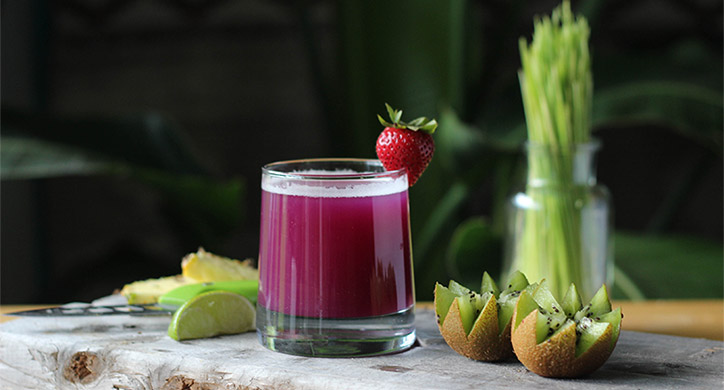
Children’s excessive consumption of juice has been linked to an increased risk of weight gain, cavities, blood pressure, cholesterol and hyperactivity. So why are we feeding our kids this stuff?
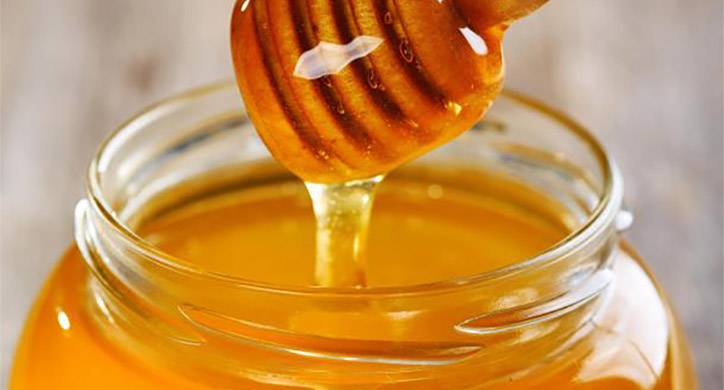
Is honey a healthier sweetener than sugar? We wanted to learn more about what is in honey and how this delicious sweetener is made.

When you juice fruits and vegetables, you remove almost all of the fiber from your favorite produce and leave behind a lot of sugar. Which begs the question: which is healthier, smoothies or juices?

A mini universe of microbes exists within and around each of us. As scientists begin to genetically sequence microbiota, they have discovered ways to enhance human, animal, and plant health. Let’s look at some of the companies leading the way in microbiome applications…

CRISPR-Cas9 will soon surpass GMOs as the most influential gene editing technology for food production. Let’s explore how this technology will change the way farmers grow their crops and enhance the food we eat today.

Juice Press engages fear-based marketing tactics that are hurtful to farmers and spread false information to consumers. We need to support our farmers and the technology that helps them grow safe, healthy fruits and veggies – regardless if they are grown conventionally or organically.

Obesity is a global health challenge that requires action. Recently, Chile has adopted black stop sign labels to caution consumers before purchasing food products that are high in sugar, saturated fat, calories, and/or sodium. Does this type of labeling help prevent obesity?

Consumers are switching from traditional dairy to substitutes. 1 in 5 Americans says this is for health reasons. But are dairy-free alternatives actually better for you than traditional milk?

Coffee speaks a global language. This potent little bean wakes up millions of people every morning. But are there any health risks associated with your morning cup of caffeinated joe?
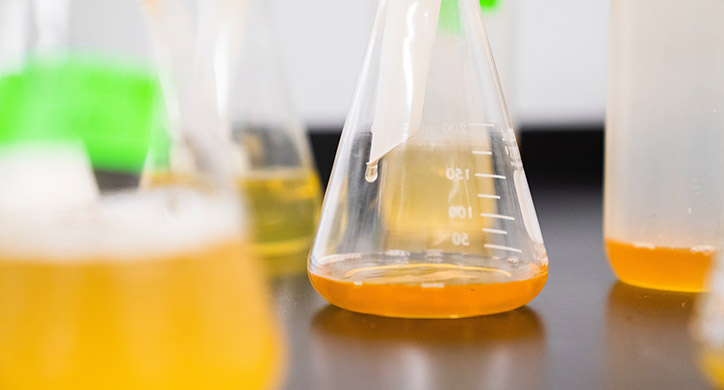
What makes a substance toxic? Consumers are led to believe that anything deemed “toxic” is bad for your health— whether it be household cleaning products or the food you eat. Alternatively, any food or product that is completely non-toxic and free of chemicals can do no harm. Is this always the case?

Insects are a healthy, affordable, and easily produced protein source for the future. We’ve examined the health benefits, but now it’s time to put these critters to the taste test.

Are there hormones in milk? Yes! All milk contains naturally-occurring hormones. But, consumer perception is that milk from cows treated with rBST may cause early puberty in children or increase the chances of getting cancer. This is not true. How did milk get such a bad reputation and what does the science say?


Too much sugar causes obesity, which is linked to a variety of health problems. Sugar is often a hidden ingredient in food making it even more difficult to measure how much you eat. Why is sugar bad for you, and how much can you safely eat each day?

Chronic inflammation is believed to be the underlying cause of many long-term illnesses such as cancer, heart disease, autoimmune diseases and even brain diseases, including Alzheimer’s and dementia. Are you inflamed?

Enjoy more merriment and less guilt with these healthier renditions of some of our favorites...

The holiday season is upon us and this is usually the time we have fun indulging in sugary treats and festive cocktails. How different are spirits, wine, and beer in terms of calories, sugar content and nutritional value?

Tom Brady has defied the odds of aging and is still playing professional football at age 40. The recent release of his book, How to Achieve a Lifetime of Sustained Peak Performance is a New York Times #1 bestseller. While Tthe TB12 diet does offer lots of helpful nutrition advice, there is also some dubious science.

We are told to live in fear of toxic substances and their effects on our health. But what makes something toxic? And how does our body process toxicants? What are the different types of toxic exposures in our daily lives, and do we need to worry about all of them…?

What does it mean to eat clean? We read a lot about this approach to ‘healthy eating’ but it seems somewhat misleading. Is it a sensible lifestyle change or a marketing gimmick?

The ketogenic diet embraces healthy fats and asks you to kick carbs, sugar, and even some protein to the curb. It has proven to be successful in very overweight patients, but what does the research say about long-term potential, especially if you are not obese?

Agave nectar is a popular sweetener that many people use to replace sugar. What is agave, how is it processed, and is it better for you than table sugar?

A Dirt to Dinner reader recently emailed our team in response to the Kombucha article we had written. After reading the article, she questioned which probiotic supplement was “better” for her—Kefir or Kombucha?
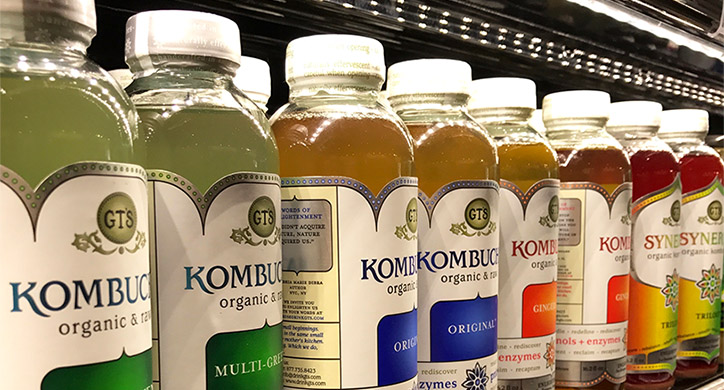
Kombucha is a tea-based, probiotic drink that boasts the ability to regulate digestion, fight inflammation, and support a healthy immune system.

The journey of milk -- from a dairy farm to a processing plant to your grocery store.

Turmeric products are popping up everywhere because this bold, orange spice is believed to help fight inflammation. For centuries the turmeric root has been a staple in both Asian and Indian holistic medicine. Should we be taking turmeric supplements?

Greek yogurt is protein-dense and can be thrown into a smoothie, mixed with almonds and fruit, or used as a substitute for sour cream in cooking. As we investigated how this yogurt is made, we discovered that two-thirds of the milk used doesn’t end up in the final yogurt product and creates an unusable “acid whey.” But, are there ways to repurpose this by-product?
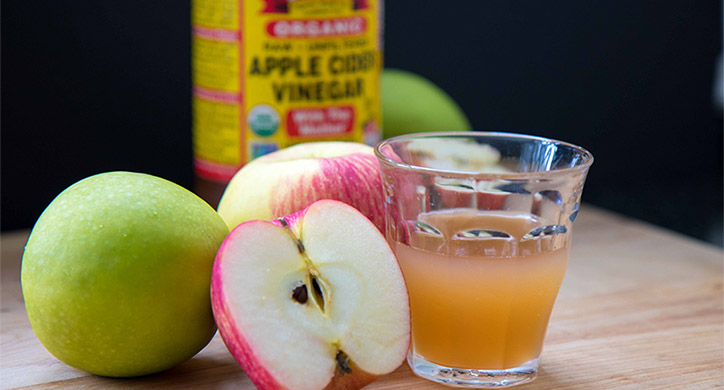
Apple cider vinegar has become an extremely popular “cure-all” that many people believe helps fight weight gain, keep your gut healthy, regulate your stomach acidity, clear up your skin, stabilize blood sugar, and fight cancer cells. What does the research say?

Milk – a staple at mealtime – has unexpectedly become part of a controversial food group. Concerns regarding lactose and/or saturated fat content have pushed aside the important nutrients in a glass of milk. It is high in calcium, protein, essential fatty acids, and vitamins A, E, D, B2, and B12! Before you toss the carton, you might want to consider the health benefits…

Protein is essential to our health. When looking for a quick fix, many consumers turn to protein powders. But, do you know where these powders are coming from? The D2D team took a deeper look at some protein supplements—here is what we found.

Cleansing, fasting, caloric-restriction— these are just a few diet tricks. But new research has indicated that controlled fasting performed roughly twice a year may help keep your cells healthy and enable your body to replace damaged cells.

Will well-balanced, homemade meals be printed? Today, culinary experts are exploring how this is possible. Can printers help create food that is fresh and tasty? Will our kitchens soon be equipped with printers? Where is this new technology headed…

Water is over 50% of the human body mass. It is vital for human life. But does the type of water you drink make you healthier? Should we be buying Alkaline water?

Fruits and Vegetables should make up at least 50% of our diet. But, do you know what produce to buy and when? How to select fruit that is ripe and veggies that are fresh? Several of our readers have asked D2D to look into this…so, as the seasons are changing, here is what you need to know about buying seasonal crops.

Sugar and its overconsumption are fueling the obesity epidemic in the United States as well as the countries adopting a Western Diet. In an attempt to create healthier humans, government agencies on the local and global level have proposed a sugar tax. But, would a tax really benefit the health of Americans or is it simply a disguise to collect additional revenue?

The Mediterranean Diet has been touted as one of the most beneficial “diets” on the market. Can it help hopeful healthy-eaters enjoy a better relationship with their food?

What is an antioxidant? These days, millions of products are labeled as a “superfood” or containing a strong source of antioxidants. The research into antioxidants is promising.

Matcha green tea is the highest grade and most potent green tea available. A good source of vitamins and minerals, it's nutritional profile also boasts high antioxidants and a strong amino acid content. So, we wanted to know what makes this so-called “super-food” so special? Should we be drinking matcha every day?

When you hear a food is “high in fat” you immediately think it is bad for you. While there is some truth to that, you need to consider what type of fat you are looking at. Not all fats are created equal. Fatty acids are an extremely vast topic and to give your body proper nutrition, you need to understand the important role fat plays in your health.
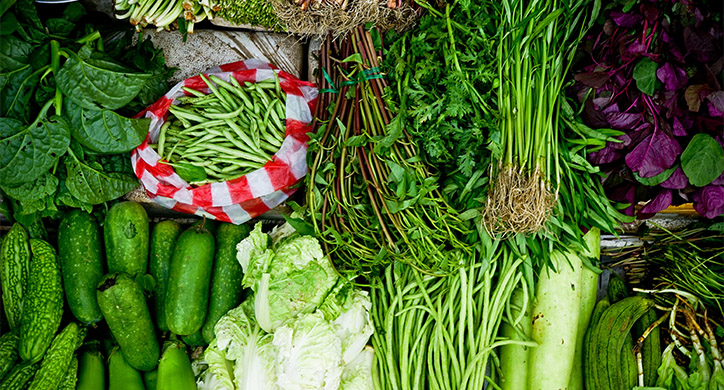
As the demand for new meatless options increases, we asked ourselves— should we be making a change or simply incorporating more plant-based products into our diet?

Coconut is celebrated for its low sugar and high healthy fat content. Commercially sold products include water, oil, milk, juice, sugar, and even flour— and each one touts a dense nutritional content of antioxidants, healthy fats, vitamins and minerals. What does the science say?

The protein staple that often occupies 50% of your dinner plate has turned from traditional beef, pork, or chicken to vegetable-based proteins and cultured meat. How is food technology influencing our protein options?
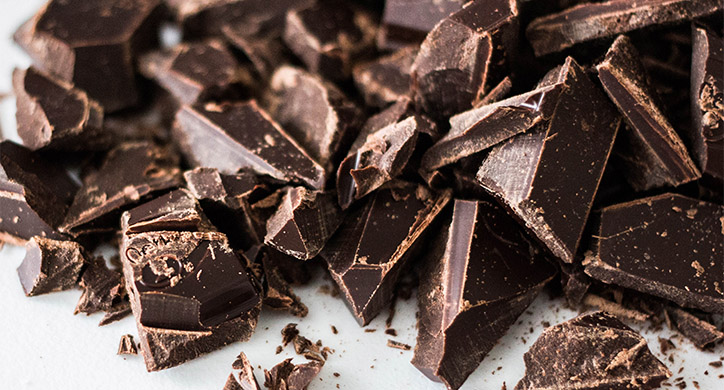
“Dark chocolate is good for you!” We’ve all heard that one before, especially when struggling with a diet. But how healthy is chocolate? And how much do you need to reap the nutritional benefits? Is it just dark chocolate or can it be found in other chocolate products as well?

No one wants to get sick from contaminated food. From farmers to retailers, here is what you need to know about how the food industry and government agencies work to keep you healthy and trust the food you buy.

Activated charcoal is believed to be a detoxifier, but how much of this is factual and how much is strategic marketing? Is activated charcoal actually something we should be incorporating in our daily diet regime?

The world population is growing at a rate of 1.2% In response to this, food processing companies have begun to explore insects as an alternative protein source. What are the benefits to eating insects and are they an effective answer to future food shortage issues? If you are looking for a new protein option, here is what you need to know…

Whether your meat was fed a grain-based meal or foraged for grass, it is still a nutritious source of protein, B-complex vitamins, zinc, iron, and phosphorus.

How has our produce selection evolved? Year round availability plus the desire for a healthy diet has given new life to basic fruits and vegetables

Fad diets certainly come and go, but the Atkins Diet is a popular weight loss program that has been around for the past 30+ years. The diet program calls for a heavy restriction of carbohydrates with an increased intake of fat. And while Atkins may be able to help you shed some quick pounds, is your overall body health benefitting from the program?

Research scientists are finding that the “right” combination of bacteria in your intestine may help burn fat cells, prevent autism, prevent brain diseases like Alzheimer’s, keep cancer at bay, and even alleviate anxiety and depression. This almost sounds too good to be true!

Skin is the body’s largest organ. That means it is a living, breathing part of you that helps protect you from harmful stimuli. But, if it is not properly protected it can also absorb toxic substances. Your skin also needs the right nutrients to stay healthy. What are the best ways to support your skin?

It can be next to impossible to get all the micronutrients you need in your diet, which is where supplements can help.

“A glass of red wine is the equivalent to an hour in the gym.” That cannot be real—can it? A D2D reader brought this headline to our attention and we had to investigate. And while the two definitely are not equal, red wine does have health benefits.

What is this 5:2 Diet, anyways? To start, it’s derived from studies on fasting with the formula of 5 days with food and 2 non-consecutive days without. Though this method of extreme dieting is not something we recommend, there are some interesting studies being performed on overall health and longevity when practicing sporadic fasting.

The Paleo diet—otherwise known as the Caveman diet— wants to take you back in time. Paleo fans eat only what comes straight from the soil. While there are healthy components to this diet, the food restrictions are unnecessary.

When you see food labeled as “natural” do you know what it really means? Labeling food as “natural” is often more of a marketing ploy than anything else. Guess what, foods without the “natural” label can still be good for you…

Why are we led to believe wheat is unhealthy? Whole grain is an important part of our daily nutrition. Sure, a big bowls of pasta every day isn’t healthy, but we need whole grain as part of a well-balanced diet.

Juice cleanses have become increasingly popular, but the science behind cleansing states your body knows how to cleanse itself. In fact, there are no known long-term health benefits to cleansing. So, do you really need to starve yourself with green juice to detoxify your body?

The World Health Organization released a statement asserting red meat consumption should be limited as it is considered carcinogenic. But before you ditch the steak or occasional bacon, lets take a closer look at the studies behind this statement and whether the potential risk is something to worry about…
Sign up for weekly Ag & Food news!
with Transcript: The Curious Comeback Of Beef Tallow